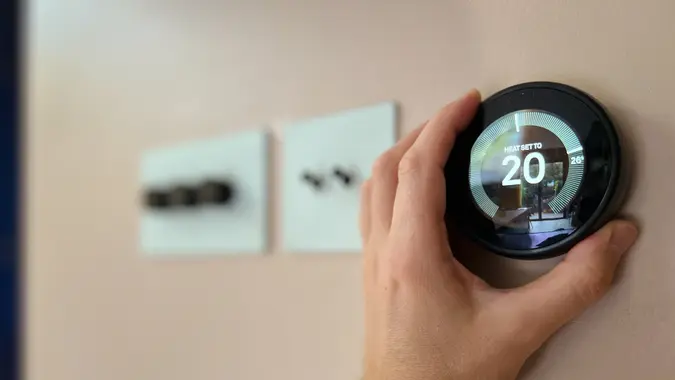4 Signs You’re Being Too Frugal When Saving for Retirement

Commitment to Our Readers
GOBankingRates' editorial team is committed to bringing you unbiased reviews and information. We use data-driven methodologies to evaluate financial products and services - our reviews and ratings are not influenced by advertisers. You can read more about our editorial guidelines and our products and services review methodology.

20 Years
Helping You Live Richer

Reviewed
by Experts

Trusted by
Millions of Readers
If you’re delaying vital purchases in the name of saving for retirement, experts say this can cost you big later — particularly if you’re being too frugal with healthcare.
“The most telling sign I see of harmful over-saving is when clients consistently postpone essential medical and dental care,” said Kevin Shahnazari, founder and CEO of FinlyWealth.
But healthcare isn’t the only thing you should avoid under-spending on. Here are experts’ top signs you’re being too frugal when saving for retirement.
You’re Avoiding Spending on Necessities
“In my opinion, there’s a fine line between being mindful with your money and being overly frugal to the point of self-deprivation,” said Shirley Mueller, finance expert and founder of VA Loans Texas.
She said a key sign someone is too frugal with their retirement savings is when they avoid spending on necessities, like healthcare or home maintenance, to stash away a few extra dollars.
“I’ve seen retirees who skip routine doctor visits or delay critical repairs on their homes, thinking they’re being smart, only to face larger costs down the road,” she explained. “Retirement savings are meant to provide security and comfort, not force you into making sacrifices that harm your well-being.”
Shahnazari agreed. “Just last month, I worked with a couple who delayed replacing their failing water heater, causing expensive water damage that cost far more than the initial repair would have.”
He said this pattern of avoiding necessary maintenance — whether for your health or home — creates bigger expenses down the road.
Opting for Poor Quality
Another red flag, according to Mueller, is consistently opting for the cheapest option without considering the long-term value.
For instance, she said buying low-quality furniture or appliances may save money upfront, but these items often break down faster, leading to higher replacement costs.
“I’ve advised clients who were hesitant to spend on durable goods or services, only for them to realize later that their extreme frugality cost them more in the long run,” she said. “Investing in quality doesn’t mean being reckless, it’s about balancing initial costs with durability and utility over time.”
“Quality matters more than immediate savings,” Shahnazari agreed.
“I had a client who bought the cheapest possible work shoes every few months, spending more annually than a single pair of well-made shoes would cost,” he explained. “When we analyzed her spending, she realized this ‘save at all costs’ approach was actually increasing her expenses while decreasing her quality of life.”
Forgetting To Enjoy Retirement
“Perhaps the most concerning sign is when people are so focused on saving that they forget to enjoy their retirement,” said Mueller. “I’ve worked with clients who hesitate to travel, pursue hobbies or spend on experiences that bring joy because they’re afraid of ‘running out’ of money.”
She noted that while being cautious is important, retirement isn’t just about survival — it’s about living a fulfilling life.
“If you’ve built a solid plan and your retirement income is stable, there’s room to spend wisely on things that enhance your quality of life,” she said. “Saving too much at the expense of your happiness often signals a need to revisit your financial plan and find a healthier balance.”
Social Isolation
“Social isolation is another red flag I watch for in my retirement planning sessions,” said Shahnazari. “Several clients have admitted to turning down every social invitation, missing important family events and losing friendships because they viewed social spending as wasteful.”
He said this extreme frugality often leads to depression and loneliness, which can increase healthcare costs in retirement.
“Smart retirement planning means investing in your present well-being while saving for your future — sacrificing your health and relationships today will cost you more tomorrow.”
 Written by
Written by  Edited by
Edited by 

























